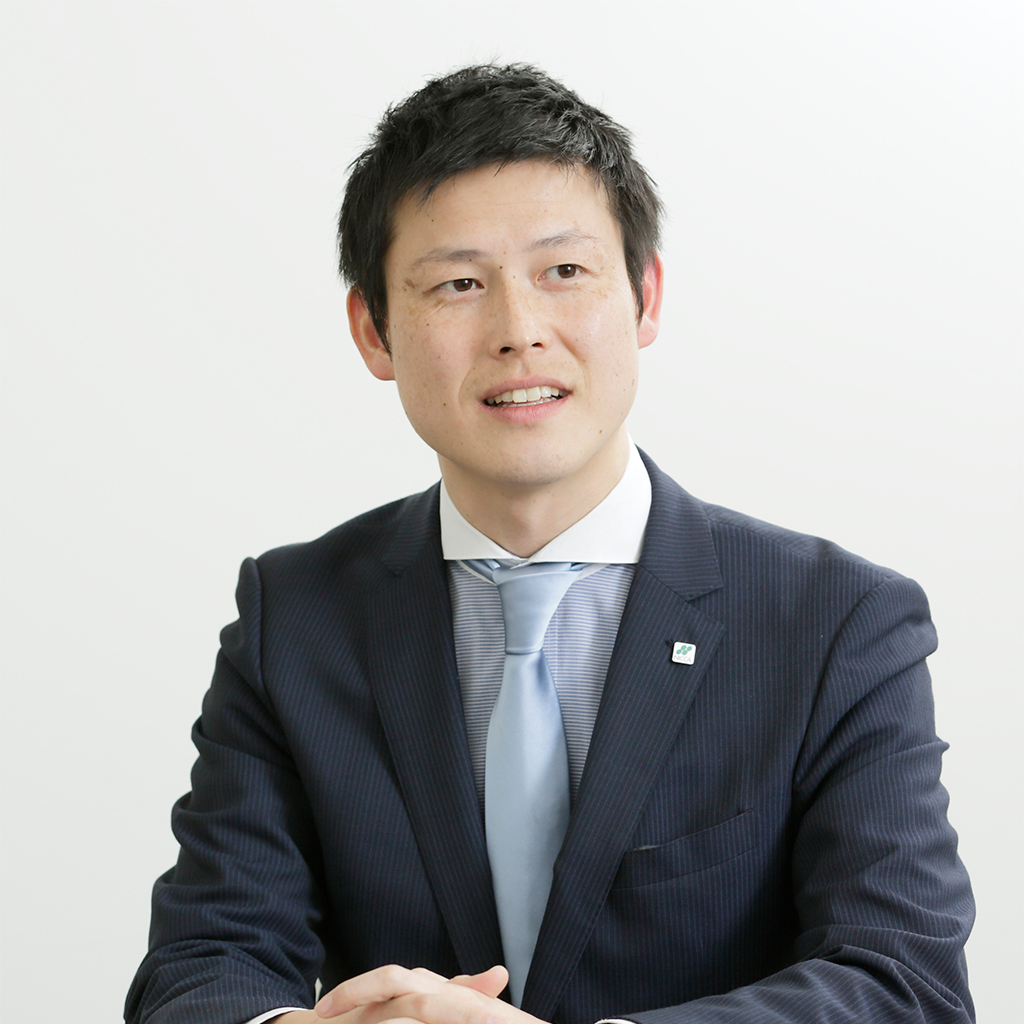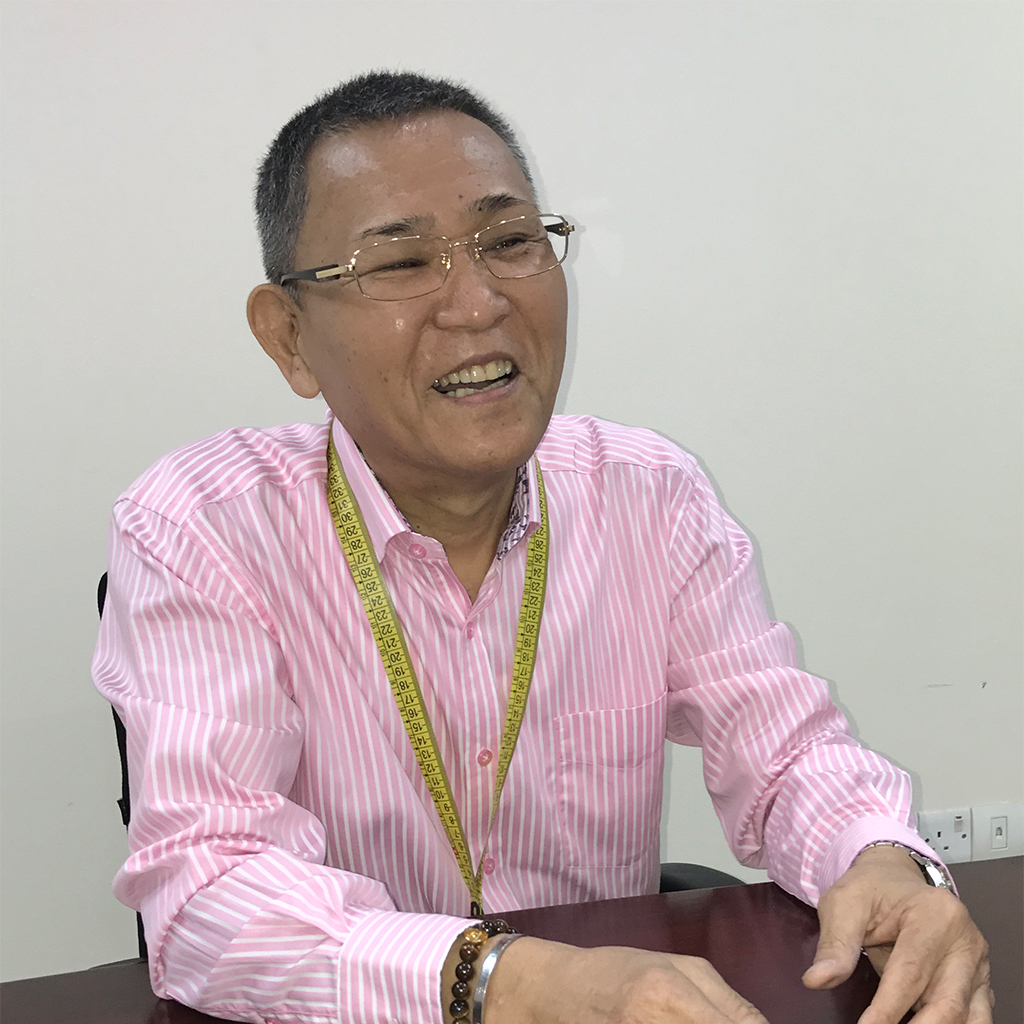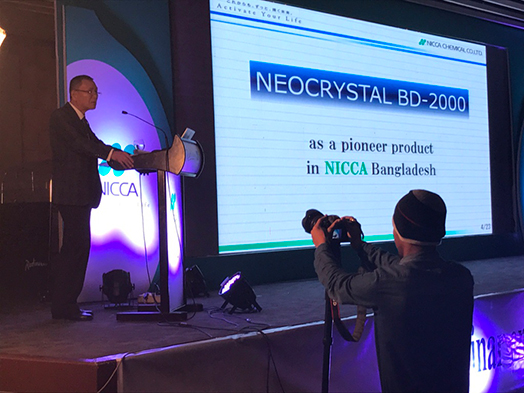Bangladesh, the fast-growing "textile export country".
- Expanding market share by leveraging "technical support".
Interviewed in March 2017
Dhaka Liaison Office
HONG KONG NICCA CHEMICAL LTD.
Dhaka Liaison Office was established in August 2014 in Dhaka, the capital of Bangladesh, as a liaison office for HONG KONG NICCA CHEMICAL LTD., a subsidiary of NICCA CHEMICAL. Targeting the local textile processing industry since that time, the Dhaka Liaison Office has grown sales rapidly from US$ 1.2 million (approx. 130 million JPY) in FY2015 to US$ 2.3 million(approx. 250 million JPY) in FY2016.In recent years, Bangladesh has become the second largest exporter of apparel in the world and the national government is working to further develop the textile industry. This is an introduction ofthe textile industry in Bangladesh and the current status of the local liaison office in its initiatives and its approach to this burgeoning market.
TAKEUCHI Kotaro
General Manager, Dhaka Liaison Office
HONG KONG NICCA CHEMICAL LTD.

UCHIYAMA Masaaki
Senior Area Manager, Dhaka Liaison Office
HONG KONG NICCA CHEMICAL LTD.

Apparel garments account for 80% of Bangladesh's exports
─ Please tell us a little about Bangladesh.
Bangladesh has rapidly grown its presence as a center of the world's textile industry within the Southwest Asian economic bloc. It has a population of 160 million living in an area that is about 40% of the size of Japan. The country has an abundant young workforce and the people are known for their manual dexterity, an added advantage when making ready-made garments. The labor-intensive textile industry has experienced rapid growth as it has been able to leverage cheap labor and energy costs. The government also backs the textile industry as a national policy, and since LDCs (Least Developed Countries) receive preferential tariffs(*1) from export destinations, Bangladesh has been growing rapidly as an export processing location for apparel products for Europe, in particular, since around 2010. Today, apparel accounts for 80% of the country's total exports.
─ What was the purpose of establishing the Dhaka office and how is it staffed?
HONG KONG NICCA CHEMICAL has been supplying Bangladesh with textile chemicals from PT. INDONESIA NIKKA CHEMICALS(*2) for over 15 years. The Dhaka office was established to further develop the market and expand sales. The office is currently located in a central commercial area in Dhaka and is run by two Japanese and five local staff members. The office also has laboratory facilities for conducting processing tests, which are handled by two of our Technical Support members.
Going Steady Growth
─ How has the textile industry in Bangladesh developed over the years and what is its future?
The industry began with "ready-made garments," which people could make if only they had sewing machines. Later, As the garment export grows,there arose spinning, knitting, weaving and dyeing factories gradually. Today, there are"Composite" (*3) factories which have vertical setup with large-scale manufacturing facilities. Textile-related companies continue to grow in scale. Currently, there are more than 3,500 sewing factories and around 350 dyeing and processing factories throughout the Bangladesh. Of that number, 50 composite factories have the dyeing capacity of 50 tons/day, with the majority of finished product exported to large apparel companies in Europe.The textile industry in Bangladesh is still growing at more than 6% per annum and this trend is forecasted to continue until at least 2025. As the textile industry is so important, star business in Bangladesh, it also tends to attract the nation's best human talent. Top graduates from the elite University of Dhaka, similar to Japan's University of Tokyo, seek employment at the larger textile companies and become active leaders in plant operations and company management.
─ Is your business growing steadily?
Thankfully, as mentioned above, sales have continued to grow significantly, and the number of customers increased from 15 to around 40 today. While we currently try to tap into and develop direct business with customers, we have also been focusing on building adistributor network to handle our products. I believe that our current success is due to this work. We would like to further intensify these activities in the future and aim to increase sales to 3% of market share out of 200 Million USD market in this country.
Quality and leadership will be our strength

Mr. Uchiyama speaking at the technology seminar
─ What is your future strategy?
When Bangladesh textile industry started to grow rapidly, the market of textile chemical was dominated by European chemical suppliers. We launched our business when it was truly disadvantageous times for us, but we have grown this business by driving what is unique about us. One such feature is our product quality. Along with a certain level of quality or higher being required to meet the needs of the mature European market, another prerequisite is being environmentally friendly, which includes not emitting harmful substances during the processes. Exports to large Japanese SPA(*4) have increased recently so the need to provide high quality and tobe environmentally friendly has increased as well. It is this type of processing at which our company excels.
Another of our features is the ability to customize and lead. Out of the 350 dyeing factories, the top 100 companies we are targeting, including composite companies, all operate large-scale factories and are committed to the rationalization of their production. The finish of textile processing depends on various factors, such as the machinery used, water, and temperature. We can use our lab facilities in the office to create a processing agent optimized for each of these companies based on their particular factory environment. We contribute to the management of these companies by providing instruction on how to use our chemical products and by proposing cost-efficient methods. This is a practiced and proven traditional way of doing business for NICCA. There aren't many companies in this industry that have built such a system.
In March, we invited about 180 customers, including the top management people and managers of local composite factories and other textile processing companies,to a technical seminar titled "NICCA Innovation in Textile Chemicals." We would like to build that opportunity to more broadly share our knowledge in the areas of textile processing technology and process rationalization, to enhance our presence as a reliable partner.
Glossary
(*1) Preferential tariff
A system that supports the economic development of LDCs (Least Developed Countries) by applying lower tariffs on imports from LDCs compared to those from other countries.
(*2) PT. INDONESIA NIKKA CHEMICALS
Located in Karawang City, Indonesia
Established in 1974, this subsidiary of NICCA Chemical (90% ownership) purchases products and intermediate products from NICCA Chemical and then manufactures and sells those chemical products.
(*3) Composite factory
A composite is a combination of multiple items. In the textile industry, a composite factory handles the entire production process, from the procurement of yarn, knitting, dyeing, sewing, and so on.
(*4) SPA
SPA stands for "Specialty store retailer of Private label Apparel," which means that the company incorporates a business model for apparel that is fully integrated, from planning to manufacturing all the way through to retail.

